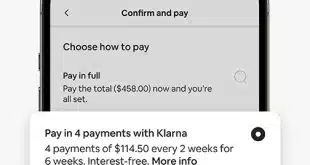Merchants’ price for accepting credit cards has remained steady for years, according to data released Monday by the Electronic Payments Coalition, an advocacy group representing the payment card industry. The EPC’s release comes as widespread and longstanding merchant complaints about the cost of card acceptance have sparked efforts by federal lawmakers to put a lid on the fees merchants pay to take credit cards.
The estimated weighted average credit card interchange rate for U.S. sellers was 1.8% in 2021, unchanged since 2016, according to the data, which is sourced to Jersey City, N.J.-based Verisk Financial Research. Interchange is the largest component of merchants’ card-acceptance costs, which also include network and acquirer fees. With these fees included, U.S. merchants paid an average discount fee on credit card transactions of 2.22% in 2021, level with 2020 and down slightly from 2019, according to the data.
The release of the data comes amid widespread complaints from merchant groups about what they view as steadily rising costs linked to accepting credit card transactions. The EPC, which represents the card-payments industry, has long argued that merchants undervalue the benefits of card acceptance.

“Consumers across all generations heavily rely on electronic payments and the benefits they provide, such as rewards programs, convenience, and fraud protection,” Jeff Tassey, chairman of the board of the Washington, D.C.-based EPC, in a statement released with the data. “The data speaks for itself, interchange and merchant discount rates have remained stable.”
But merchant advocates contend card acceptance remains a steadily rising cost burden in the aggregate for retail businesses. “Swipe fees have been exploding over the last several years. In fact, fees were $22 billion higher in 2022 than they were in 2021,” says Doug Kantor, general counsel for the National Association of Convenience Stores, long a critic of acceptance costs, in a statement sent to Digital Transactions News in reaction to the EPC’s data release.
“To put that in perspective,” Kantor continues, “the total annual revenue of the National Football League is $19 billion. Just the increase in swipe fees was more than NFL revenue. The credit card industry can try to confuse things with misleading data, but their fee increases are huge and are hurting Main Street and American consumers.” Kantor is also a member of the executive committee of the Merchant Payments Coalition, an advocacy group.
The EPC’s latest release emerges as Washington considers a proposal to control credit card acceptance costs. The Credit Card Competition Act, introduced last summer by Sens. Richard Durbin, D-Ill., and Roger Marshall, R.-Kan., would require that all merchants have a choice of at least two unrelated networks for card processing. The bill, which proposes to foster more competition for processing, failed to pass but is expected to re-emerge this year.






